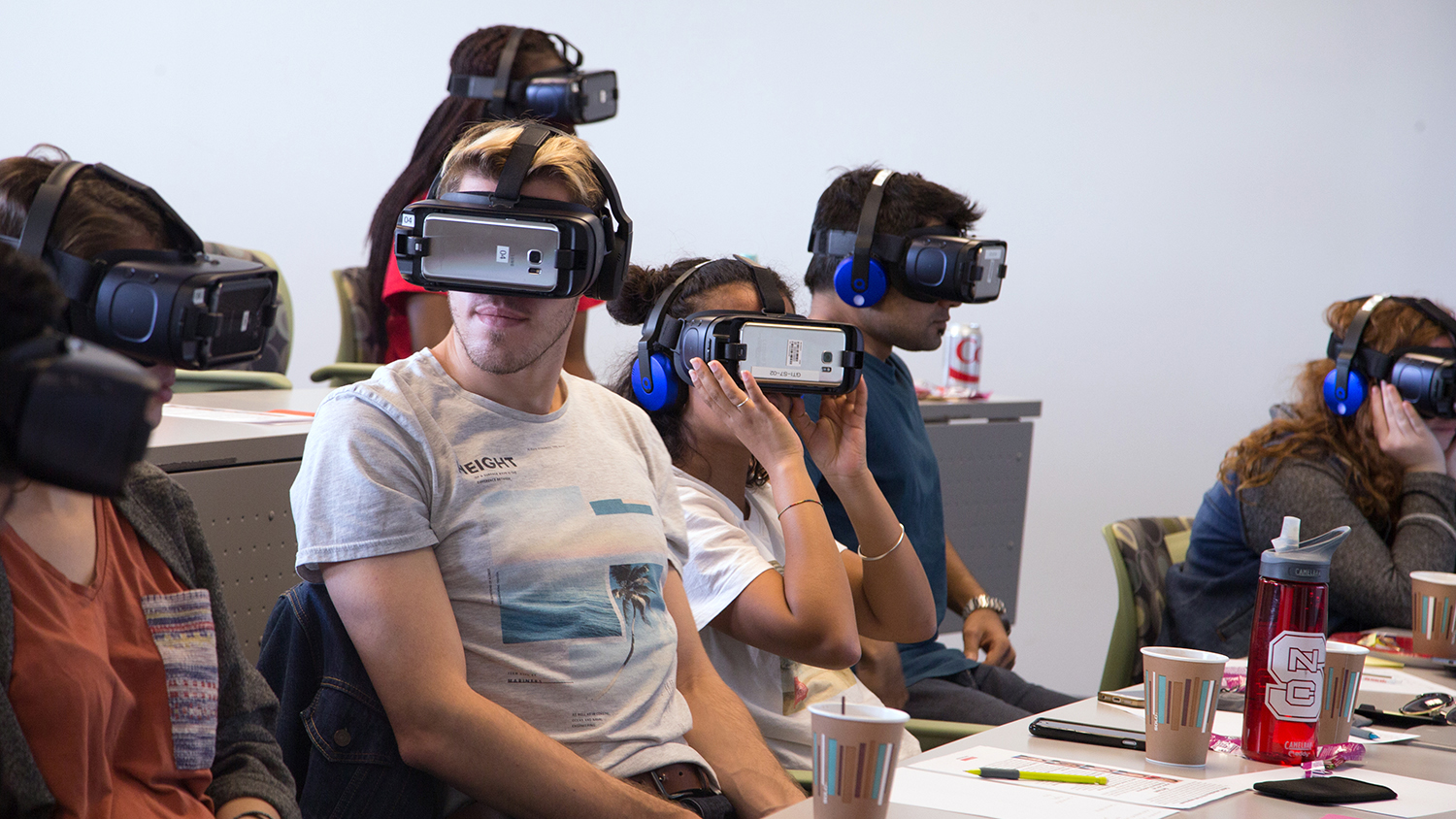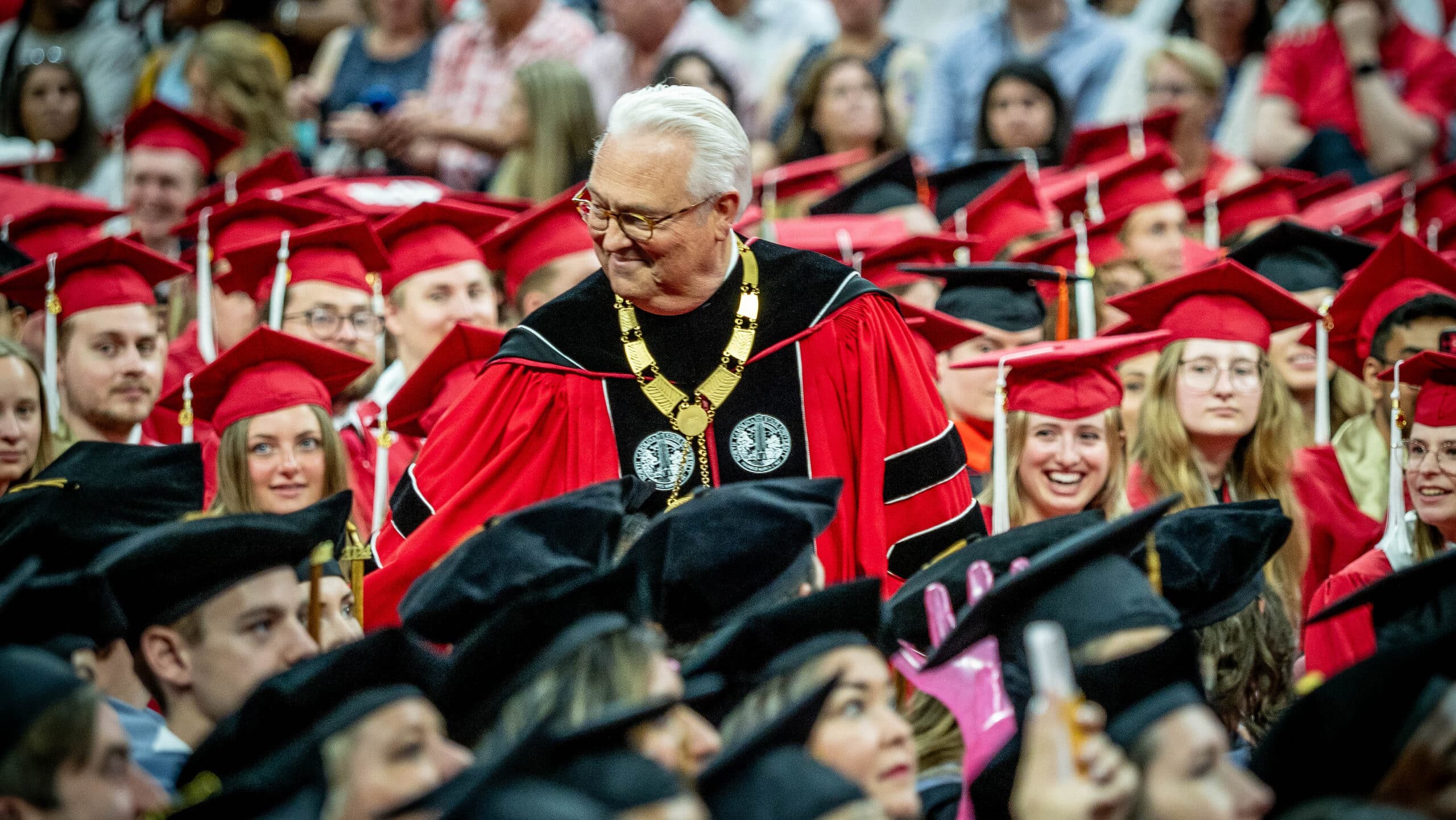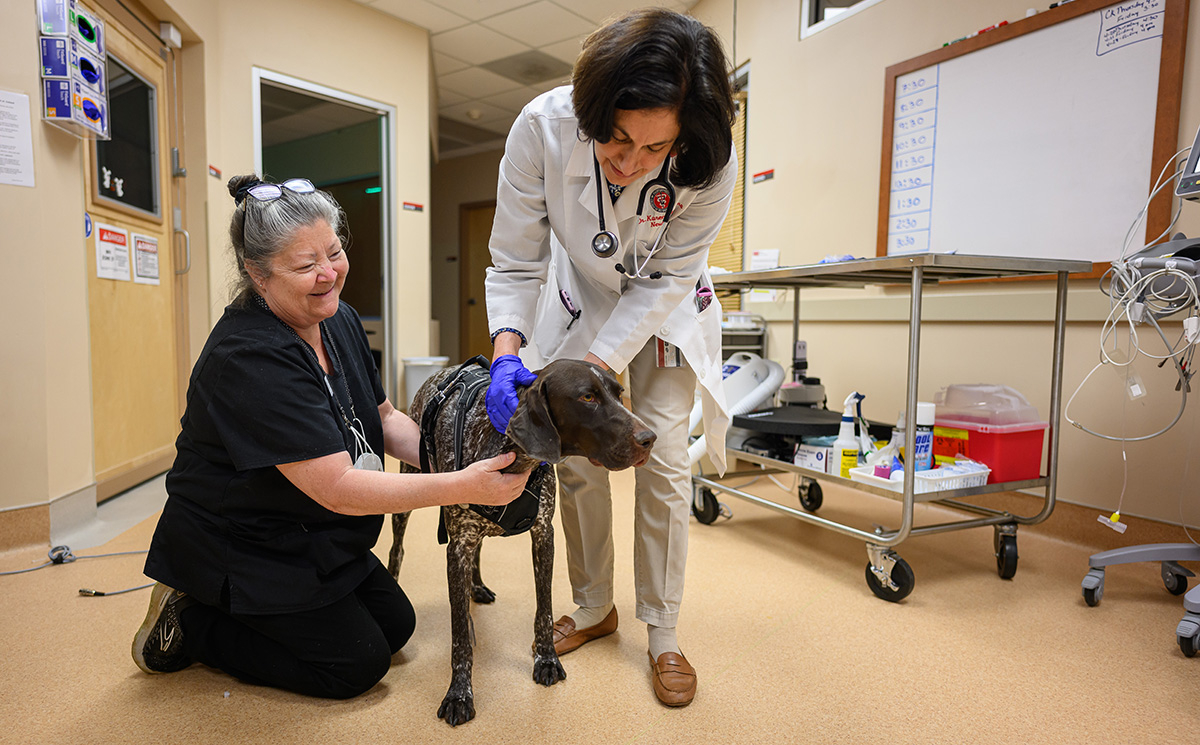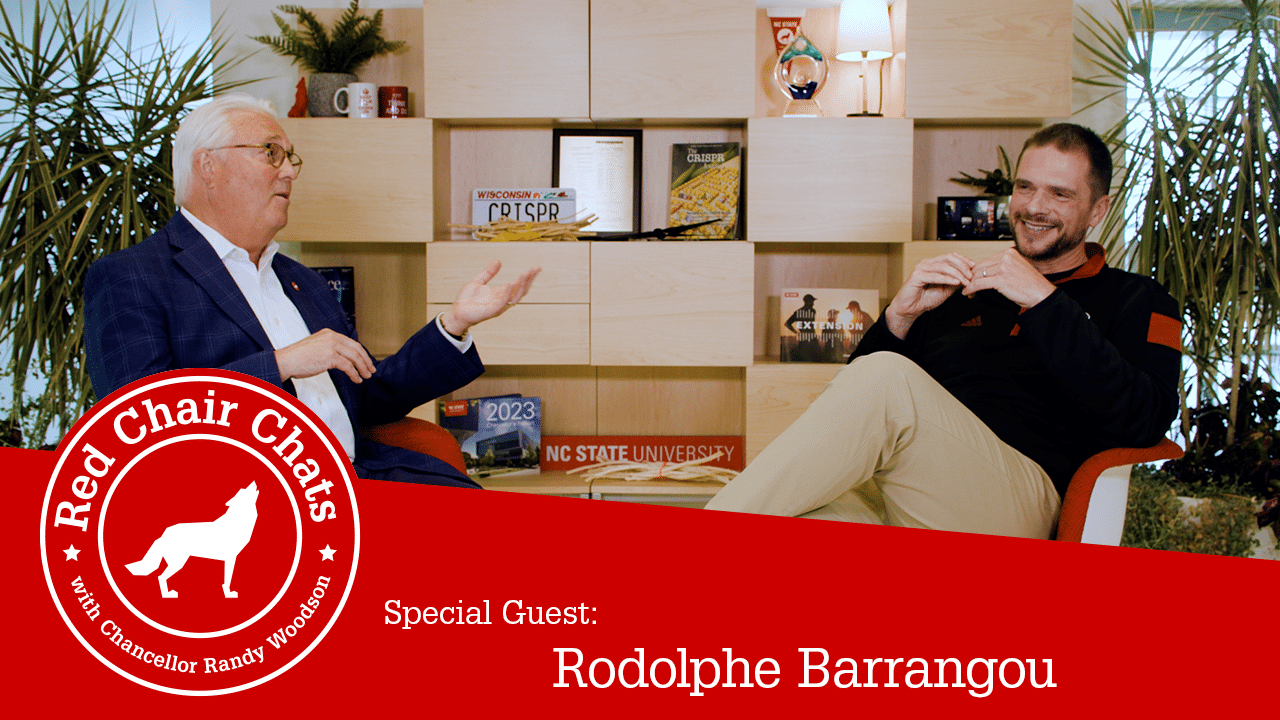This is the time of year to prepare proposals for DELTA Grants. Faculty thinking beyond morphing a seated class to an online or hybrid class but aren’t sure how to categorize ideas can apply for an exploratory grant.
With Exploratory Grants, DELTA teams craft solutions based on faculty ideas for what they wish to accomplish. A variety of expertise is leveraged to reach the objectives for each accepted proposal.
A sampling of exploratory grants may strike a chord as you consider your options.
DELTA has a staff of instructional and multimedia designers and an internal information technology team to turn faculty visions into reality. The teams at DELTA interact extensively with faculty to explore options while keeping instructional goals in sight.
Horticulture
In refreshing HS 200 for lecturer Lee Ivy, a 2017 Gertrude Cox Award recipient, the team devised an animation to describe a complex plant process that was difficult to grasp conceptually.
“We are encouraging the students to get their hands dirty,” said Ivy. This second grant allowed for the creation of animations to better explain complex concepts and to inspire students to compare real horticulture environments.
One of the new module activities is a 3-D soil sampling component. Students use this game-like feature to visualize the landscape site and learn how to properly take soil samples, calculate chemical and physical soil amendments. Ivy added, “Again, it will inform while inspiring them to participate in an outdoor horticultural environment.”
Based on student evaluations, students have responded well to the layout and production methods in the videos. The numbers greatly improved after the first grant cycle and he expects the new additions to the course implemented in fall 2016 to receive good reviews as well.
“I recommend DELTA grants to as many as are interested in expanding their teaching capabilities,” said Ivy. “I get really excited about new technologies, especially since I am not scared of exploring them. Having gone through the grant processes has taught me to embrace new possibilities in teaching and conveying information.”
Physics
Colleen Countryman, teaching assistant professor, wanted to create her own app for PY 205 Physics Lab at NC State that would be student friendly. There were paid apps available but she wanted to devise a free app for her students, as well as high school students, to be able to drop their phones for science.
In lieu of the expensive, hard-to-read lab equipment that requires training, Countryman and her DELTA team created the MyTech app during her first exploratory grant. She received a follow-up grant to refine, enhance and evaluate the benefit to student learning.
Not only was the MyTech app a huge savings for her department in equipment costs, the efficiency with which the students can complete and comprehend their assignments has been powerful. The proliferation of smart devices has allowed students to utilize just-in-time learning to immediately and graphically view tested hypotheses that would not be an option with traditional equipment. They can even continue their tests outside of the classroom.
Countryman had the idea for an app since students are familiar with their smart devices and typically have them readily available. This familiarity has allowed students to better understand physics concepts and explain them at the level of advanced physics students.
“When students used similar apps in our studies before the development of the MyTech app, they were incapable of explaining the intricacies of how their sensors collected data,” Countryman says. “With the MyTech app’s built-in transparency and a curriculum that directly integrates these features, students were able to provide detailed explanations of these mechanisms at the level of advanced physics students.”
Nutrition
Virtual reality (VR) is another tool DELTA uses in certain educational situations. A couple of current examples include a first-person, point-of-view (POV) camera used in a 360-degree environment to help NTR 420 students get a glimpse of what their first teaching experience in the community would resemble.
In addition to the teacher POV experience, several conflict resolution videos were created to expose student-teachers to situations that may arise. They watch scenarios in a Google Cardboard headset and select the response they would have in the given situation. These teachable moments help the students gain confidence with community interactions, including children and senior adult groups, before venturing into the field to teach cooking classes.
These teaching experiences were combined with traditional videos for knife skills, etc., used in the class. After using the new techniques in class, Natalie Cooke, teaching assistant professor, said students felt more at ease when embarking on their community teaching missions.
The videos show instructors teaching audiences that are being difficult or challenging. After watching the videos with a virtual reality headset like Google Cardboard, students will have group discussions to determine if the instructors handled the behavior appropriately. The groups can then see what would have happened had the instructor chosen one resolution over another.
“Of course you can’t create everything, but the more tools we can give students and put them vicariously into that position, the better,” Cooke says. “We’re trying to create this experience where the student feels like they are put in the classroom and they are the teacher and they have to make a decision, but they’re not really there.”
Global Training Initiative
Another successful exploratory project is the collaboration with the College of Education’s Director of International and Distance Education Alliance Ivonne Chirino-Klevans, Global Training Initiative (GTI) and DELTA staff. The project is called Cross-Cultural Competency. This grant aims to determine if empathy can be taught through virtual reality experiences with different cultures.
There are two scenes set up in a VR environment. Scene one offers a fly-on-the-wall view of a business meeting. Scene two has users choose from three different first-person point-of-view experiences. Once they choose a person, they can hear dialogues and thoughts of each person in the meeting environment. Exploring situations help viewers become aware of their own biases and assumptions about cultural dimensions and what they look like in a real situation.
This VR-mediated lesson uses the principles of action learning, including two specific elements of conflict resolution: self-awareness and empathy skills. Participants learn to respond appropriately and effectively to a cross-cultural incident in a business situation. This activity is intended to be used as part of a course aimed at developing global management and leadership skills.
“Leveraging on DELTA’s expertise and willingness to try new technologies we have used virtual reality to design cases that involve interactions across cultures,” Chirino-Klevans says. “These cases require cultural competence skills to address self-awareness and empathy as important milestones in the ability to work in global teams. The most important aspect of this project has been the ability to bring different perspectives, skills and expertise from the different members of the team, all of us working towards one same goal.”
Getting inside the mind of someone from a different culture is a unique opportunity.
“We’ve already received feedback that it’s extremely helpful to experience conflict from different points of view,” says GTI assistant director Ilin Misaras. “It’s one thing to teach about cultural differences, but it’s another thing to experience those differences. We believe this engages participants on a cognitive and an emotional level and reinforces the concepts that are being taught.”
Landscape Architecture
A fascinating new project taking shape at the end of the 2016-17 DELTA grants is for landscape architecture classes. A selection of reusable, modular graphics and 360-degree videos in several public spaces in the state are being created and will be repurposed in different classes. The plan is for faculty in different courses to share multimedia files as learning tools for planning activities in public spaces.
These immersive videos will be used to illustrate complex environment and behavior concepts to teach to all levels of students. The digital tools created will be used in professional development courses to teach foundational environmental/behavioral concepts and design to non-design students.
Students will be able to drop pins and add textboxes to a 2-D map replication of the 360-degree video environments. The mapping tool will allow students to identify and label concepts they learned through observing and navigating the videos.
Production is well underway for this project.
“We wanted to create an engaging and interactive virtual environment for design students,” says Nilda Cosco, a research associate professor in the College of Design. “Working with DELTA professionals has been really stimulating because we are finding ways to show main design principles in visual ways more appropriate for the younger generation growing up in the digital world.
“The results of this work will be used for two courses and two certificate programs.”
Submit a Proposal
There is still time to attend a group consultation. Visit the Attend Group Consult page for more details.
There is a worksheet available to prepare your proposal on the Submit a Proposal page, as well.
The deadline to submit proposals is May 5.
For more information, visit go.ncsu.edu/deltagrants and the FAQs page. Please direct any questions about the submission process or DELTA grants generally to deltagrants@ncsu.edu.
- Categories:



